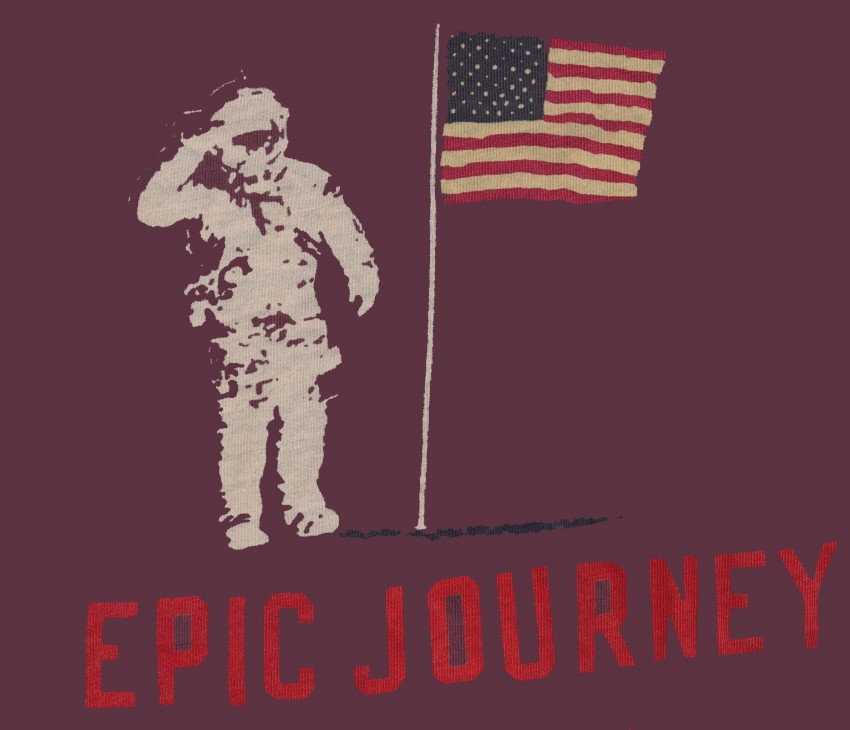“I had heard that Hopestill Mather filled her leisure time with none of the mild artistic enterprises commonly undertaken by young ladies who had been “out” for some time, the water colors, the humorous poetry, the informal essays, the sculpturing in plasticine, the rendition of Chopin.”
—from Boston Adventure by Jean Stafford
When I was a sophomore in college (think private, northeast), I decided I didn’t want to be a student anymore. My mother warned me– don’t drop out if you want to graduate. My father was in commercial real estate, the market was bottoming out, there wouldn’t be tuition money for me in two years. I said, okay, I’ll just take one tiny semester off. I went to San Francisco and walked around Haight Street and Golden Gate Park for five months. There were serious “dropouts” living all over the park in those days. I haven’t been back lately to check on them. But they weren’t faking it. It was “scared straight,” homeless hippie style.
One day I went over to Berkeley to see the “other” side of the bay. I think I went to the university art museum, a few bookstores, maybe a poetry reading? It’s possible. I wandered around Telegraph Ave, ate a bagel with avocado and sprouts, drank coffee, and watched two buddhist beats play a long game of chess. Then it got dark, and late, and I headed down the hill to the BART station. On a quiet side street, a young woman in a wheelchair called out to me. She said her chair had run out of batteries and she couldn’t get home. She was severely disabled; I saw that right away.
All day, I had seen students in wheelchairs. I had noted it. Just noted it. Maybe I was a little afraid.
She asked if I could take her back to her house, and I agreed. When we got there, she asked me to help her get inside, and I did. Her roommate was also paralyzed; he was sitting in the living room typing with something in his mouth. A stylus, I guess, which was pretty high-tech at the time.
The woman asked me to help her go to the bathroom. And I did. The bathroom was dark and I didn’t turn on the light. I remember that.
So it was no big deal. though I was flustered, and confused as to why I was suddenly having such an intimate experience with a total stranger. But we managed to get her pants down, then we got her onto the toilet, then her pants went up, and back into the wheelchair. We were done.
I left and went back to San Francisco.
When I got back to college the next semester , I was describing this incident over pitchers of beer with some other students. Kids, you know, like me. Twenty years old. And I told the story, not as a joke, but also probably not too seriously. Because it was scary, and I was probably nervous, or socially awkward, and I had no idea who the hell I was, or where I was coming from. And because, well, I was naive, which is something most people that age can say about themselves. But not all.
The story got around my little corner of campus that I was “anti-handicapped” people. Prejudiced, insensitive, something terrible and possibly indescribable. Because I had spoken about disability, and narrated my interface with it, and had stabbed around in a confusing blob of political incorrectness.
I don’t recall seeing many students in wheel chairs at my university. Actually, I don’t recall seeing any.
Why do I still remember this incident? Because I was ashamed. Shame brands itself on the brain, doesn’t it? Burns into the tissue and never quite fades. I wasn’t in my head when I was helping that young lady. When you help someone in need, you just feel good, and you get our of your lousy head. So I wasn’t in my head. But I’m sure I was in my head when I was telling my college chums about it. And I was deeply ashamed by the suggestion that I felt wrongly, or believed wrongly, or said the wrong things about the experience. About the disabled.
Worst thing was, the same thing had already happened in an art class, freshman year. One of my paintings alluded to Mr. Magoo.
Mr. Magoo was blind.

It's those damn words that keep getting you in trouble.